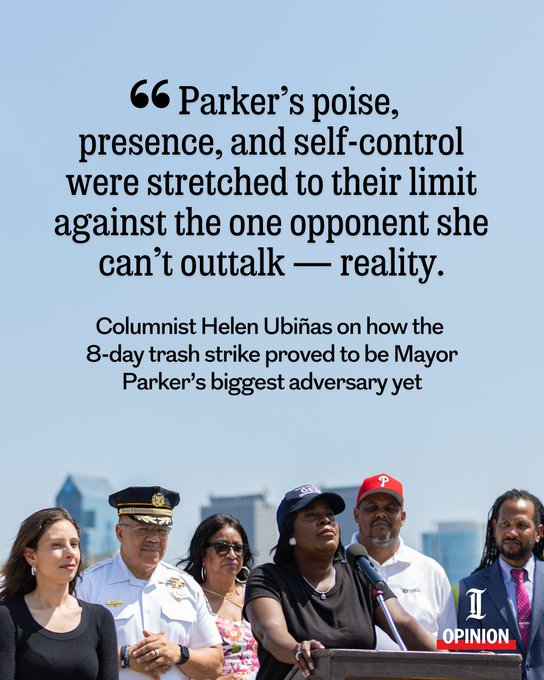The philly trash strike started on July 1 when nearly 10,000 public‑sector workers represented by AFSCME District Council 33 walked off the job. The trash strike Philadelphia quickly disrupted curbside pickups, closed libraries and pools, and led to overflowing dumpsters across the city. In this philly strike blog post, you’ll find the latest updates on the strike in Philadelphia, the reasons behind it, the impact on residents, and how it could resolve.
Why Did the Strike Start

Below are the main reasons behind the trash strike Philadelphia.
Workers demanded better wages and benefits after a contract expiration. AFSCME DC 33 sought an 8 % annual raise over four years (32% total), while the city, under Mayor Cherelle Parker, offered roughly 13‑14 % over the same period including the extension. The Philadelphia trash strike was triggered as tensions mounted when negotiations faltered and no compromise was achieved by June 30.
What Services Were Affected
Here’s how city life changed during the philly trash strike:
- Curbside trash pickup for residences was entirely suspended when sanitation workers decided to walk off.
- Dozens of temporary drop‑off centers were established but soon overflowed
- Libraries and pools shut their doors in solidarity or due to staff being on strike
- Emergency services like 911 dispatchers and water dept employees were ordered back by court injunctions
- Dumpster overflow spurred public health warnings about pests and unsanitary conditions
How the City and Residents Reacted
Text below H2: the city scrambled to respond while locals did what they could.
Philadelphia officials opened about 60 drop‑off sites, urged patience, and set court orders to restore critical services. Many residents pitched in by hauling private trash, using pop‑up haulers, and creating barriers to stop illegal dumping. Community groups and volunteers also began cleaning hot‑spot areas.
Despite the health concerns—rats, stench, and reduced sanitation—many people backed the workers’ fight for better pay. One resident said workers “deserve it” after handling “people’s filth”.
What Happens Next
Talks resumed on July 8 after eight days off the job. Mayor Parker touted her offer as “historic” and fiscally responsible; Union Prez Greg Boulware said they’re seeking more. On July 9 they reached a tentative deal to end the strike: a three‑year contract with a combined 14 % pay raise (city sources say 9 %, union claims 14 %)—pending ratification.
Key Impact Points
- Duration: Eight‑day philly trash strike halted services and disrupted holiday weekend plans
- Health Concerns: Officials raised alarms about rodents, asthma, and mental stress from trash piles
- Public Reaction: Most residents supported the workers despite discomfort, citing fairness in wages
- Court Actions: Judges ordered key staff—911 dispatchers, water staff—back to work, and banned picketing at city facilities
- Resolution: Agreement announced July 9: pending ratification, trash services will resume soon
FAQ
When did the Philly trash strike begin and end?
It began July 1 and ended July 9 with a tentative deal between AFSCME DC 33 and city officials.
What triggered the strike in Philadelphia?
The strike started due to failed wage negotiations: the union wanted 32 % over 4 years, but the city offered about 13‑14 % .
What services were impacted?
Essential city services were shut down: curbside trash, libraries, pools, and non‑critical water services. Critical roles like 911 dispatch were court‑ordered back.
How did the city respond to the issue of trash piling up?
They arranged 60 drop-off centers, enforced fines for unauthorized dumping, and prompted residents to limit their waste production. Community volunteers and private haulers also assisted.
What did the final agreement include?
A three‑year contract with a total 14 % pay increase over the mayor’s term, plus the previous one‑year extension—still needs union ratification.
Final Takeaways
The philly trash strike highlighted the essential role of sanitation and city workers. Despite the disruption, it brought public attention to worker compensation and city budget priorities. Now that the strike has been resolved, the trash strike in Philadelphia brings attention to the equilibrium between aiding workers and upholding clean, safe neighborhoods. Watch for ratification updates and how quickly services bounce back post‑strike.
Read more article please click on the Link.



